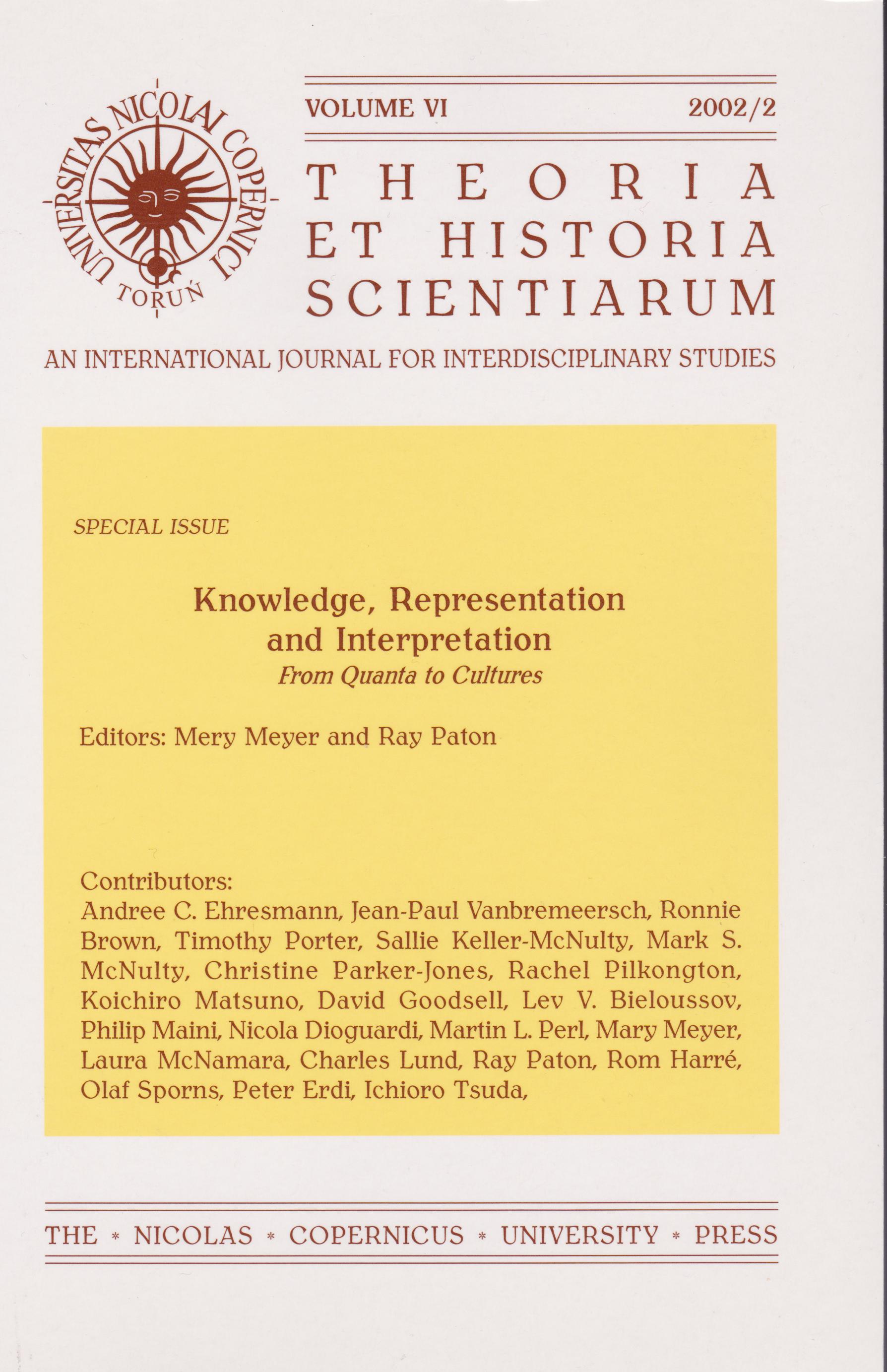Knowledge in Memory Evolutive Systems
DOI:
https://doi.org/10.12775/ths.2002.020Keywords
memory evolutive systems, knowledge, pragmatics, langauge, acquisition of knowledgeAbstract
The Memory Evolutive Systems (MES), introduced in a series of former papers, propose a mathematical model, based on Category theory, for open autonomous hierarchical systems such as biological, neural or social systems. Here the authors show that MES give a framework in which to study the formation, representation and interpretation of knowledge. In particular, they explain how the system can acquire pragmatic or conceptual knowledge though the coordinated action of a net of competitive internal patterns of agents, called coregulators (or CRs). This knowledge is not rigid, but is adapted to different situations subject to an appropriate choice of some parameters. Depending on its complexity level, a CR participates in an automatic or deliberate manner to the development of the collective distributed memory, relying on the partial information it collects at its own timescale on the system, its environment and the records of its past experiences. Higher CRs can classify records and develop more complex conceptual knowledge. Language (for men and social groups allows a system to interpret its own knowledge and intentionally diffuse it.References
Baas, N. A. (1992), Hyperstructures - a framework for emergence, hierarchies and complexity, in Proceedings du Congres sur I'emergence dans les modeles de la cognition, Telecom. Paris, 67-93.
Barr, M. & Wells, C. (1984), Toposes, triples and theories, New York, Springer.
Borsuk, K. (1975), Theory of shape, Warsów, Monografie Mat. 59.
Bunge, M. (1979), Treatise on Basic Philosophy, Vol. 4, Dordrecht, Reidel.
Chandler, J. L. R. (1997), Emergence of complex organized natural systems, in Proceedings ISAS '97, NIST Special Publication 918, 211-216.
Changeux, J.-P. (1983), L’homme neuronal, Paris, Fayard.
Cordier, J.-M & Porter, T. (1989), Shape Theory, New York, Wiley.
Damasio, A. (1999), The feeling of what happens, New York, Harcourt Brace & C°. Dennett, D. (1990), La strategie de I’interprete, Paris, NRF Gallimard.
Eccles, J.C. (1986), Do mental events cause neural events? Proc. Royal Soc. Lond. B227, 411-428.
Edelman, G.M. (1989), The remembered Present, New York, Basic Books.
Ehresmann(-Bastiani), A. & Ehresmann, C. (1972), Categories of sketched structures, Cahiers Top. et Geom. Diff. XIII-2. (Reprinted in Charles Ehresmann, Oeuvres completes et commentees, Partie IV-1, Amiens 1984.)
Ehresmann, A. C. and Vanbremeersch, J.-P. (1987), Hierarchical evolutive systems, Bull. Math. Biol. 49, 13-50.
Ehresmann, A. C. and Vanbremeersch, J.-P. (1991), Un modele pour des systemes evolutifs avec memoire..., Revue Intern, de Systemique 5 (1), 5-25.
Ehresmann, A. C. and Vanbremeersch, J.-P. (1996), Multiplicity Principle and emergence in MES, SAMS 26, 81-117.
Ehresmann, A. C. and Vanbremeersch, J.-P. (1999), Site Internet'.
http://perso.wanadoo.fr/vbm-ehr.
Eilenberg, S. & Mac Lane, S. (1945), General theory of natural equivalences, Trans. Am. Math. Soc. 58, 231-294.
Gazzaniga, M. S. (1985), The social brain, New York, Basic Books.
Goffman, E. (1973), La mise en scene de la vie quotidienne, Editions de Minuit, Paris.
Gray, J. W. (1989), The category of sketches as a model for algebraic semantics, in Categories in computer science and logic (Ed. Gray, J.W. & Scedrov, A.), Providence R.I., Am. Math. Soc.
Hebb, D. O. (1949), The organization of behaviour, New York, Wiley.
Hubei, D. H. and Wiesel, T.N. (1962), Receptive fields..., J. Physio. 160 (1).
Josephson, B. (1998), Extendibility of activities and the design of the nervous system, in Proceedings third international conference on emergence ECHO III (Ed. Farre), Helsinki.
Kan, D. M. (1958), Adjoint Functors, Trans. Am. Math. Soc. 89, 294-329.
Kuhn, T. S. (1972), La structure des revolutions scientifiques, Paris, Flammarion.
Mac Lane, S. (1970), Categories for the working mathematician, New York, Springer.
Malsburg C. (von der) & Bienenstock E. (1986), Statistical coding and short-term synaptic plasticity, in Disordered systems and biological organization, NATO ASI Series 20, Springer.
Matsuno, K. (1989), Protobiology: Physical basis of Biology, Boca Raton, CRC Press. Minsky, M. (1986), The society of mind, New York, Simon & Schuster.
Paton, R. C (1997), Glue, verb and text metaphors in Biology, Acta Biotheoretica 45, 1-15.
Pavlov, I. P. (1960), Conditioned reflexes: An investigation of the physiological activity of the cerebral cortex (G.V. Anrep, Ed. and trans.), New York, Dover. (Originally published 1927.)
Piaget, J. (1964), Le developpement mental de l’enfant, in Six etudes de psychologie, Paris, Ed. Denoel-Gonthier. (Originally published in Juventus Helvetica, Zurich 1940.)
Quine, W. (1960), Word and object, Cambridge Mass., The M.I.T. Press.
Rosen, R. (1986), Theoretical Biology and complexity, Academic Press.
Skinner, B.F. (1938), The behavior of organisms: An experimental analysis, New York, D. Appleton-Century C°.
Thom, R. (1988), Esquisse d’une Semiophysique, Paris, InterEditions.
Vallee, R. (1995), Cognition et Systeme, Limonest, L’lnterdisciplinaire.
Walters, R. E. C. (1991), Categories and computer science, Cambridge University Press.
Whinten, A. et al. (1999), Cultures in chimpanzees, Nature 399, 682-685.
Wittegstein L. (1953), Philosophical Investigations, Oxford, Blackwell.
Downloads
Published
How to Cite
Issue
Section
Stats
Number of views and downloads: 481
Number of citations: 0



